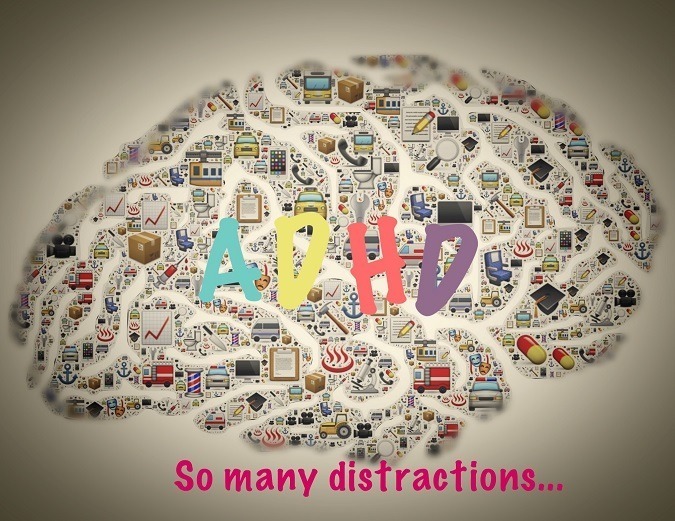Large study with twins highlights the limited role of genetics in mental health and the importance of effective early interventions for ADHD
 ___
___
Multiple studies have indicated that, on average, youth with ADHD have poorer outcomes in young adulthood in multiple areas compared to their unaffected peers.
A limitation of these studies, however, is that they have not typically distinguished between individuals whose ADHD persists into adulthood from those where the condition remits.
Youth whose ADHD remits may still experience adverse outcomes in young adulthood relative to others, perhaps because early difficulties related to ADHD sets them on a negative developmental path. Alternatively, negative outcomes in young adulthood may only be prominent among those whose ADHD persists.
Beyond this unresolved issue, there are some individuals for whom excessive ADHD symptoms emerge for the first time in young adulthood. Although this pattern accounts for a large percentage of adults with elevated ADHD symptopms, little is known about how their functioning compares to those with childhood onset.
A study published recently in the British Journal of Psychiatry, referenced below, provides a close look at how young adult outcomes in these groups compare.
2232 twins tracked for 10+ years
Participants were a population cohort of 2232 twins born in England and Wales in 1994–1995. As part of a larger assessment, participants were evaluated for ADHD at ages 5, 7, 10, and 12. They were evaluated again at age 18.
Results from these evaluations were used to classify participants into one of four groups:
ADHD remitters (n=193) — ADHD diagnosed during at least one of the childhood assessments but not at age 18.
ADHD persisters (n=54) — ADHD diagnosed during at least one of the childhood assessments and also at age 18.
Late onset (n=112) — ADHD diagnosed at age 18 but not earlier.
Comparison group (n= 1681) - ADHD never diagnosed.
At age 18, individuals in these groups were compared on a variety of outcomes including mental health, physical health, substance use, life satisfaction, problematic technology use, e.g., compulsive internet use, education, employment status, and criminal convictions.
In making these comparisons, the researchers controlled for childhood variables that could contribute to group differences, including IQ, childhood socioeconomic status.
Findings
The role of familial and genetic influences — Because study participants were all twins, and members of twin pairs often differed on diagnostic status, the authors could examine how ADHD versus genetic similarity and shared family experience contributed to young adult outcomes.
Compared to their unaffected co-twin, participants with ADHD in either childhood or adulthood were more likely to experience depression, anxiety, suicide/self-harm, lower educational attainment and life-satisfaction, and problematic technology use.
These poorer outcomes among participants with ADHD are thus not due to genetic similarities or shared family environmental factors, e.g., parental psychopathology or family stress. Instead, they are more likely to reflect a consequence of ADHD itself.
Life satisfaction and problematic technology use — Compared to those without ADHD, the remitted ADHD group showed mildly lower life satisfaction, while the persistent group had both lower life satisfaction and more problematic technology use. The same was true for those in the late-onset ADHD group.
Mental health oucomes — ADHD remitters were no more likely than comparison subjects to be depressed (21.4% vs. 17.9%) or struggle with generalized anxiety disorder (6.4% vs. 5.8%) at age 18. They were, however, more likely to be diagnosed with conduct disorder (23.6% vs. 11.9%)
Rates of all 3 disorders were considerably higher among ADHD persisters (35.2% for depression, 24.1% for generalized anxiety disorder, and 38.5% for conduct disorder) and those in the late-onset group (42.9%, 16.1%, and 35.1%).
Education and employment — Educational outcomes were poorer for all ADHD groups and especially low among those with persistent ADHD.
Individuals in all ADHD groups were also more likely to be out of both school and work compared to those without ADHD, and, to have higher rates of criminal convictions.
Substance use — Those with persistent and late-onset ADHD showed elevated rates of cannabis (i.e, marijuana) dependence and other illicit drug use relative to those without ADHD or remitted ADHD.
Rates of cannabis dependence were 3.2%, 5.7%, 14.8% and 11.6% for comparison, remitters, persisters, and late-onset groups respectively. For other illicit drug use, the rates were 15.5%, 21.8%, 29.6% and 30.4%.
Alcohol dependence, in contrast, was only higher among late-onset subjects compared to the other groups, who did not differ from each other.
Physical health outcomes - Those in the remitted and persistent groups were more likely to be obese as young adults compared to those who never had ADHD. This was not true, however, for late-onset individuals.
The risk of daily cigarette smoking was similarly elevated in all ADHD groups compared to those without ADHD.
Summary and implications
Overall, results from this study confirm prior research that children and adults with ADHD typically experience a range of negative outcomes relative to unaffected peers.
However, the nature and intensity of those negative outcomes was found to vary by developmental pattern.
Individuals with childhood ADHD that remitted were faring better in young adulthood compared to other ADHD groups as they were not at increased risk for either mental health problems or illicit drug use.
However, they did show lower educational attainment, increased risk of obesity, more frequent smoking, mildly lower life satisfaction, and higher rates of criminal convictions than their unaffected peers.
Those whose ADHD persisted experienced not only experienced these same negative outcomes, generally of greater magnitude, but also had poorer mental health outcomes and were more likely to be involved in illicit drug use. Similar negative outcomes were evident among the late-onset group,
Overall, even though outcomes are better when ADHD remits, some negative consequences in young adulthood remain likely. And, when ADHD persists, the likelihood of multiple negative outcomes increases.
Finally, although current diagnostic criteria require some impairment from ADHD symptoms by age 12 for the diagnosis to be made, individuals whose symptoms don’t emerge until adulthood are also highly likely to struggle in multiple areas. Clearly, these are individuals for whom clinical treatment is warranted.
While the above findings can inspire pessimism, better outcomes for the remitter group highlights the need for effective early intervention.
And, it is especially important to highlight that not a single negative outcome was experienced by over 40% of individuals in any of the ADHD groups. In most cases, although negative rates were higher among the ADHD groups than in nonaffected individuals, they were often under 20% of the group.
Thus, rather than being cause for discouragement, these results highlight that although more youth with ADHD will struggle in young adulthood compared to their unaffected peers, the majority will not be significantly impaired as young adults in important domains of functioning.
An important priority for future research is thus to identify which ADHD youth are most likely to have persistent struggles and what factors best accounts for meaningful differences in young adult outcomes.
 – Dr. David Rabiner is a child clinical psychologist and Director of Undergraduate Studies in the Department of Psychology and Neuroscience at Duke University. He publishes the Attention Research Update, an online newsletter that helps parents, professionals, and educators keep up with the latest research on ADHD.
– Dr. David Rabiner is a child clinical psychologist and Director of Undergraduate Studies in the Department of Psychology and Neuroscience at Duke University. He publishes the Attention Research Update, an online newsletter that helps parents, professionals, and educators keep up with the latest research on ADHD.
The Study:
Young adult mental health and functional outcomes in an 18-year prospective cohort of twins (British Journal of Psychiatry). From the abstract:
- BACKGROUND: Attention-deficit hyperactivity disorder (ADHD) is associated with mental health problems and functional impairment across many domains. However, how the longitudinal course of ADHD affects later functioning remains unclear.
- AIMS: We aimed to disentangle how ADHD developmental patterns are associated with young adult functioning.
- METHOD: The Environmental Risk (E‑Risk) Longitudinal Twin Study is a population-based cohort of 2232 twins born in England and Wales in 1994–1995. We assessed ADHD in childhood at ages 5, 7, 10 and 12 years and in young adulthood at age 18 years. We examined three developmental patterns of ADHD from childhood to young adulthood — remitted, persistent and late-onset ADHD — and compared these groups with one another and with non-ADHD controls on functioning at age 18 years. We additionally tested whether group differences were attributable to childhood IQ, childhood conduct disorder or familial factors shared between twins.
- RESULTS: Compared with individuals without ADHD, those with remitted ADHD showed poorer physical health and socioeconomic outcomes in young adulthood. Individuals with persistent or late-onset ADHD showed poorer functioning across all domains, including mental health, substance misuse, psychosocial, physical health and socioeconomic outcomes. Overall, these associations were not explained by childhood IQ, childhood conduct disorder or shared familial factors.
- CONCLUSIONS: Long-term associations of childhood ADHD with adverse physical health and socioeconomic outcomes underscore the need for early intervention. Young adult ADHD showed stronger associations with poorer mental health, substance misuse and psychosocial outcomes, emphasising the importance of identifying and treating adults with ADHD.


